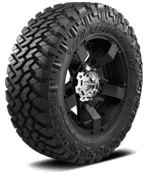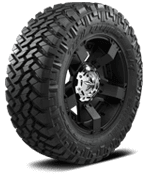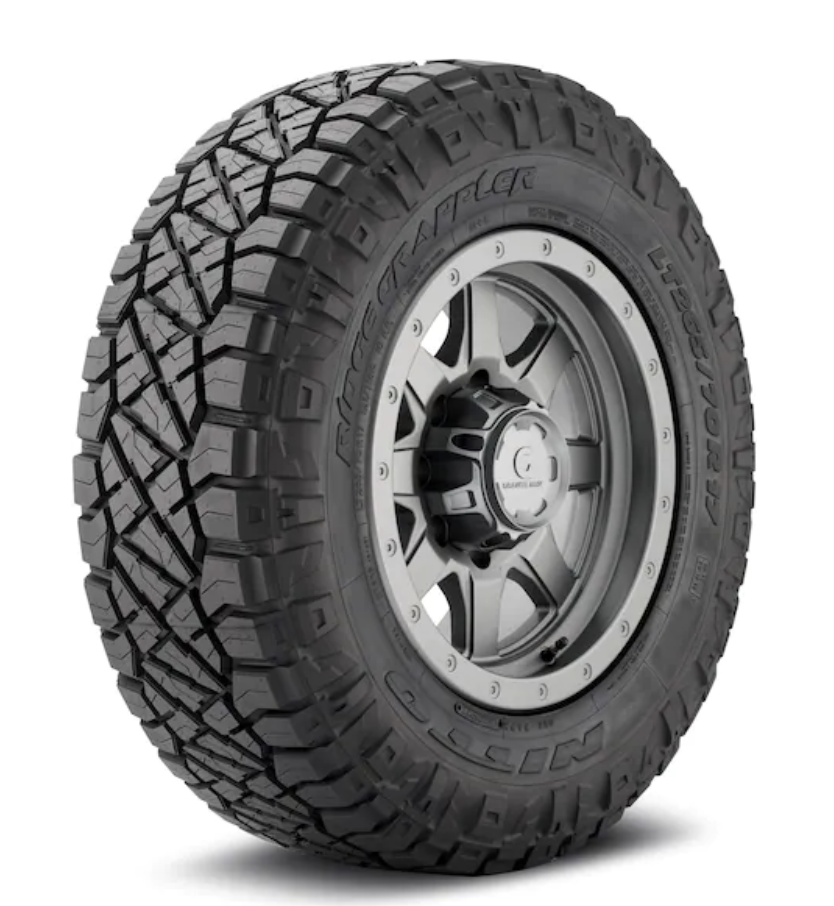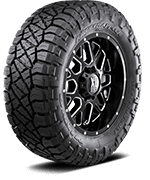- 808-331-0770
- Mon - Fri: 8am - 5pm
- 73-5617 Maiau St # 7, Kailua-Kona, HI 96740
- 808-331-0770
- Mon - Fri: 8am - 5pm
- 73-5617 Maiau St # 7, Kailua-Kona, HI 96740
The most crucial component you can purchase for any truck, Jeep, 4X4, or SUV is a set of tires. You can install as many light bars, armor, bumpers, and lockers as you like. However, the only component of your car that touches the ground is the tire. All of your other changes may be for nothing if you have improper tire traction. Even having to deal with the incorrect tires on the street can be very dangerous. Tires aren’t exactly inexpensive. You don’t want to choose the wrong ones.
Things become even more confusing when you consider all the available tire options. From aggressive mud tires for trucks to street-oriented tires, everything is available. How do you then choose the best ones? Well, don’t worry; we are here to assist you. We will go over the factors you should take into account when choosing tires for your truck, Jeep, 4×4, or SUV. Also, we’ll look at each type of tire to see if it could work for you.
Figuring out what is most important to you is one of the first steps in choosing a tire. Are you trying to find quiet light truck tires? Do you need mud tires for trucks that handle the muddiest terrain? How significant is tread life to you?
These are all major questions that you need to figure out the answers to. Why are you the only one who has the ability to respond? Each person has unique wants and needs in truck tires. So, only you know how you plan to use your 4×4 vehicle. Your friends may be able to recommend some tires. However, their opinions won’t be very helpful if they don’t use their rig similarly to you. You can reduce your options once you determine what is necessary in a tire.
Tread style, tire diameter, tire width, offset, and beadlocks are just a few of the other factors to consider when choosing the right tire for your needs. You don’t have to be an expert to make the best decision; we’re here to help. Our tire experts are happy to answer your questions and guide you through the entire purchasing process.
Another important factor to consider when selecting tires is the load rating. Make sure the tires you select can support the weight of your vehicle and its load in a safe manner. Why do you do this? Fortunately, it is simple. C, D, and E are the most common load ratings for modern LT tires, with values from B to F. On the tire’s sidewall, this load rating and the precise weight the tire can support are printed. To find the total weight that the tires can support, multiply that number by four (or six if you have a dually).
The overall weight your vehicle is hauling is taken into account by load ratings. The weight capacity of a set of Load Range E tires may be well under the weight of a 7,500-pound Ford Super Duty. However, if you fill the bed with a 3,000-pound load and add a trailer, you can quickly approach the limits. To properly match load ranges, be aware of the weight of your vehicle and the weight you plan to transport in it.
Radial structure is used in the vast majority of current tires. Radial tires handle better, ride more smoothly, last longer, and have less flat spots than bias-ply tires. When it comes to radial tires, there are also many more alternatives. Why are bias-ply tires still made today? They are largely still in existence due to their incredibly durable sidewalls. A bias-ply can still be a wise choice for a trail-only vehicle that rarely travels on pavement.
Even though bias-ply tires might have stronger sidewalls, radial tires don’t have weak sidewalls. A well-made and well-manufactured radial tire from a reputable manufacturer is long-lasting. You should be aware that while some radial tires have three ply sidewalls, some have two ply sidewalls. Two-ply sidewalls are OK if you are primarily driving on pavement with brief periods of light off-roading. Always choose a three-ply sidewall for a more challenging surface.
If you put on the miles, treadwear warranties are worth looking into. They promise that a tire will endure for a certain number of miles. You must read the fine print, however, as with any warranty. Most warranties typically require evidence that you have met requirements such as maintaining the alignment of the vehicle and rotating your tires. And if your tires wear out before the guaranteed mileage, don’t expect to get a free set of tires. Similar to battery warranties, treadwear warranties are prorated.
Another thing to keep in mind is that the harder composition used by tire manufacturers results in longer tread life. A tire lasts longer when the rubber is tougher. A tougher compound, however, also loses traction and grip. Decide what is vital to you in a tire because of this. In exchange for longer tread life, are you willing to sacrifice some off road performance? The only one who can answer that is you.
What kind of terrain you will face most of the time is a major consideration when choosing the correct tires. Will you frequently be walking on muddy trails? The snow of Mauna Kea? Do you live somewhere where it doesn’t rain very often? Will your off road truck tires spend the majority of the time on pavement? Do I want a smoother suspension ride? Will I need a lift kit for higher ground clearance? You can better match your new tires to the terrain by providing answers to these questions.
Being truthful in your responses to these questions is the secret to tire happiness. Mud terrain tires seem to appeal to the majority of us right away. On practically any rig, their sporty tread patterns look cherry. But, if you drive your car a lot on pavement, you shouldn’t choose a mud terrain tire that is noisy and quickly wears out. Tires are comparable to a committed relationship. If you choose someone purely based on appearance, they probably won’t work out in the long run.
Mud tires for trucks are popular with everyone. Mud tires may appear tough and at home on the trail, but they are specialized tires. They are excellent in the mud, as their name suggests. They shed muck and claw straight through it thanks to their wide void regions and robust treads. Mud terrain tires’ larger lugs also give them additional traction on rocky, difficult trails. Additionally, a lot of mud tires stretch the tread down the sidewall, helping to also prevent punctures.
Although mud terrain tires have many benefits, they also have significant disadvantages. First, the more aggressive the tread, the faster it wears out. As a result, mud terrain tires may lose their traction far more quickly than their more delicate equivalents. If you drive a lot, that can be significant because it means you will be spending more money more frequently. Mud terrain tires makes more noise while driving. It might not seem like a problem, but after four hours of driving, you might feel differently. Mud truck tires struggle on slippery, snowy roads, and they dig in the sand instead of floating. Mud terrain tires aren’t as adaptable as other tires, which is a fact. But no other kind of tire can compete with their performance on difficult terrain and in mud.


Mud terrain and all terrain tires are practically polar opposites. On the road, mud terrain is much noisier than any other terrain. How many more kilometers can an all terrain tire provide? There are other things to think about, such as the weight of the vehicle, the rotation of the tires, the alignment of the vehicle, and more. However, all terrain tires typically last at least 20,000 more miles than mud terrain tires. They will perform far better on ice and snowy roads and will float on the sand. It will also help you get a little better gas mileage because they have less rolling resistance.
All terrain tires are more adaptable than mud terrain tires overall. For anyone who drives their car every day, they are a superior option. They are also preferable for somebody who drives a fair amount because they last longer. All terrain tires aren’t only for the roadway, though. They still function well in the mud. They are capable of handling some muck, but will clog up in stickier, deeper mud.

Tire companies decided to make hybrid terrain tires to bridge the gap between all terrain tires and mud terrain tires, which are very different from each other. They fall in between mud terrains and all terrains in terms of performance and capability, as you might expect. Although it won’t survive as long as an all terrain tire, a hybrid tire will outlast a mud terrain tire. On the pavement, hybrids are noisier than mud terrains but quieter than all terrains. They can handle more mud than an all terrain, but not as much as a mud specific terrain. Because they combine mud and all terrain tires, hybrids are appropriately titled.
So, are hybrid tires ideal? Hybrid tires are ideal for people who prefer the features of an all terrain tire but occasionally encounter mud. A mud terrain tire will perform better if you frequently traverse rough paths and mud. Also, if you ride a lot of kilometers but rarely get stuck in mud, you should stick with an all terrain tire. Again, the best method to choose a tire is to be truthful with yourself about your needs and how you use your car.
